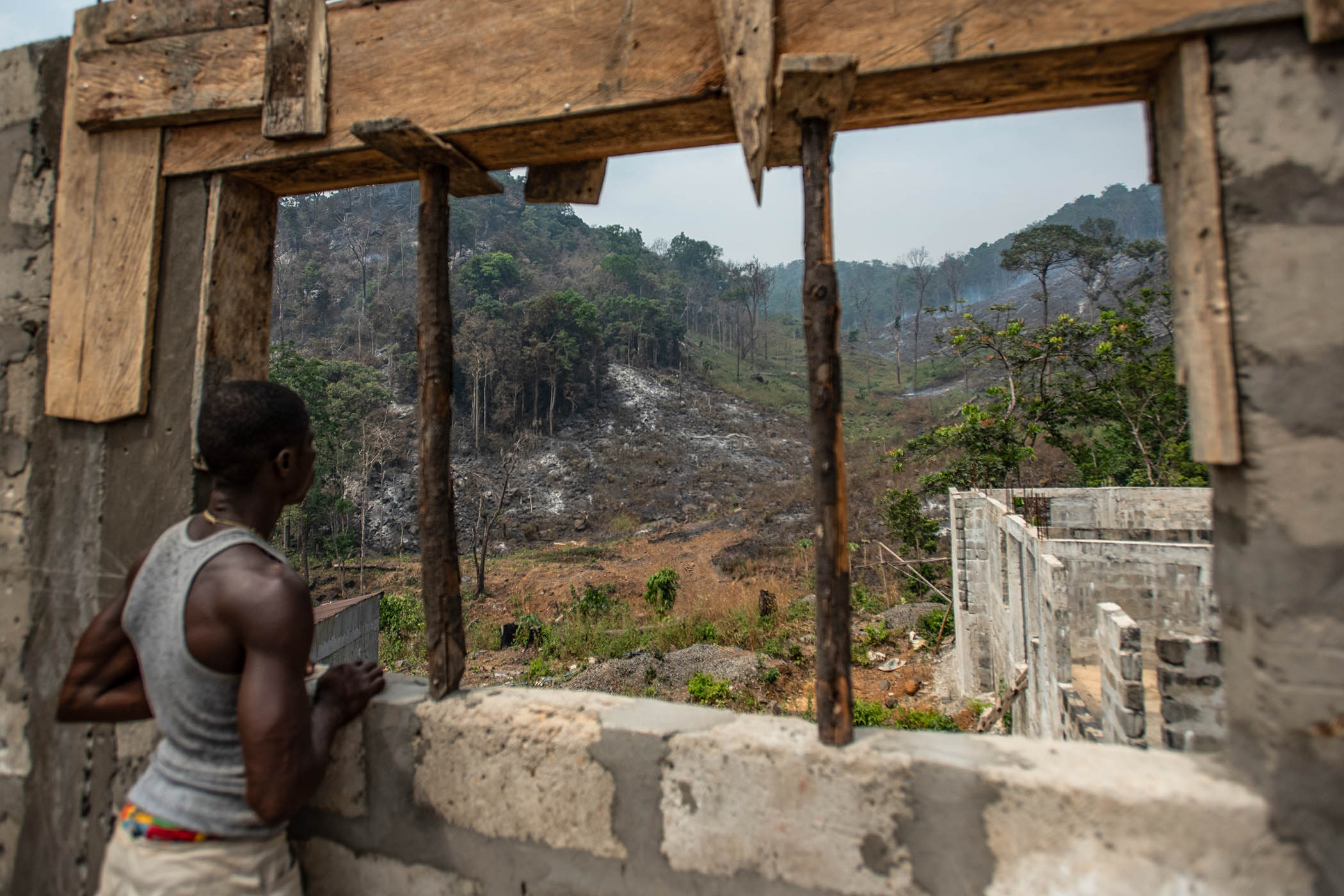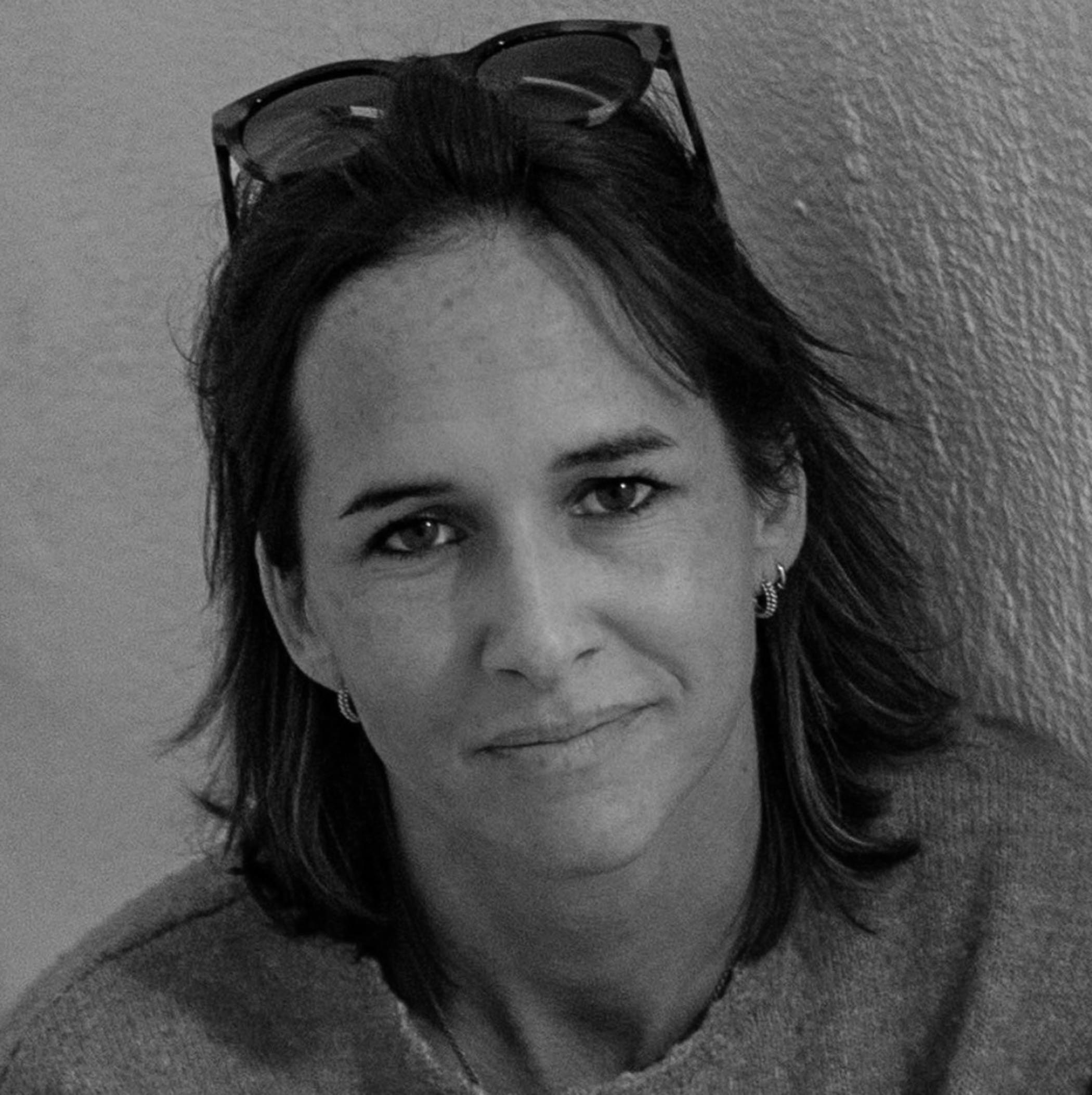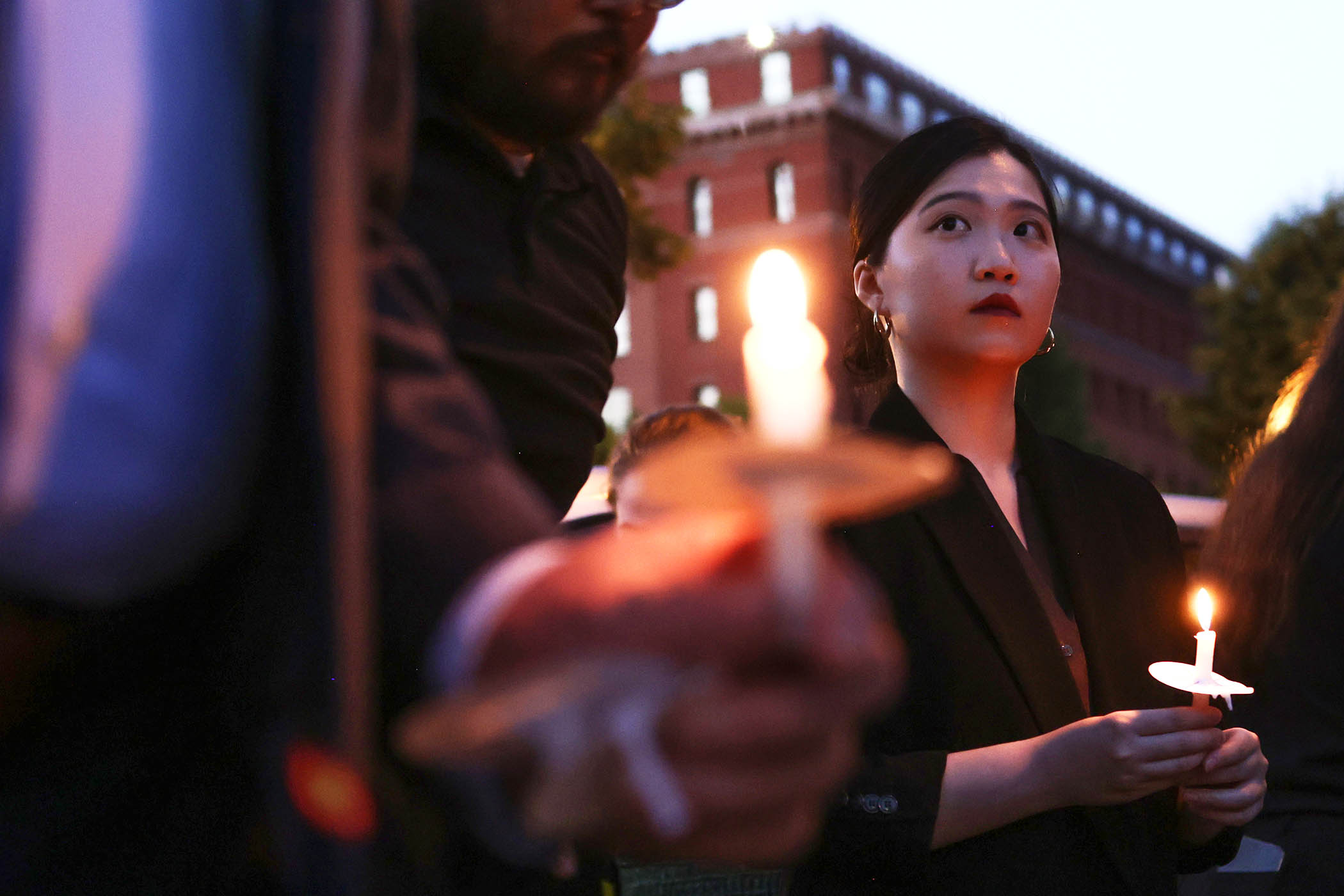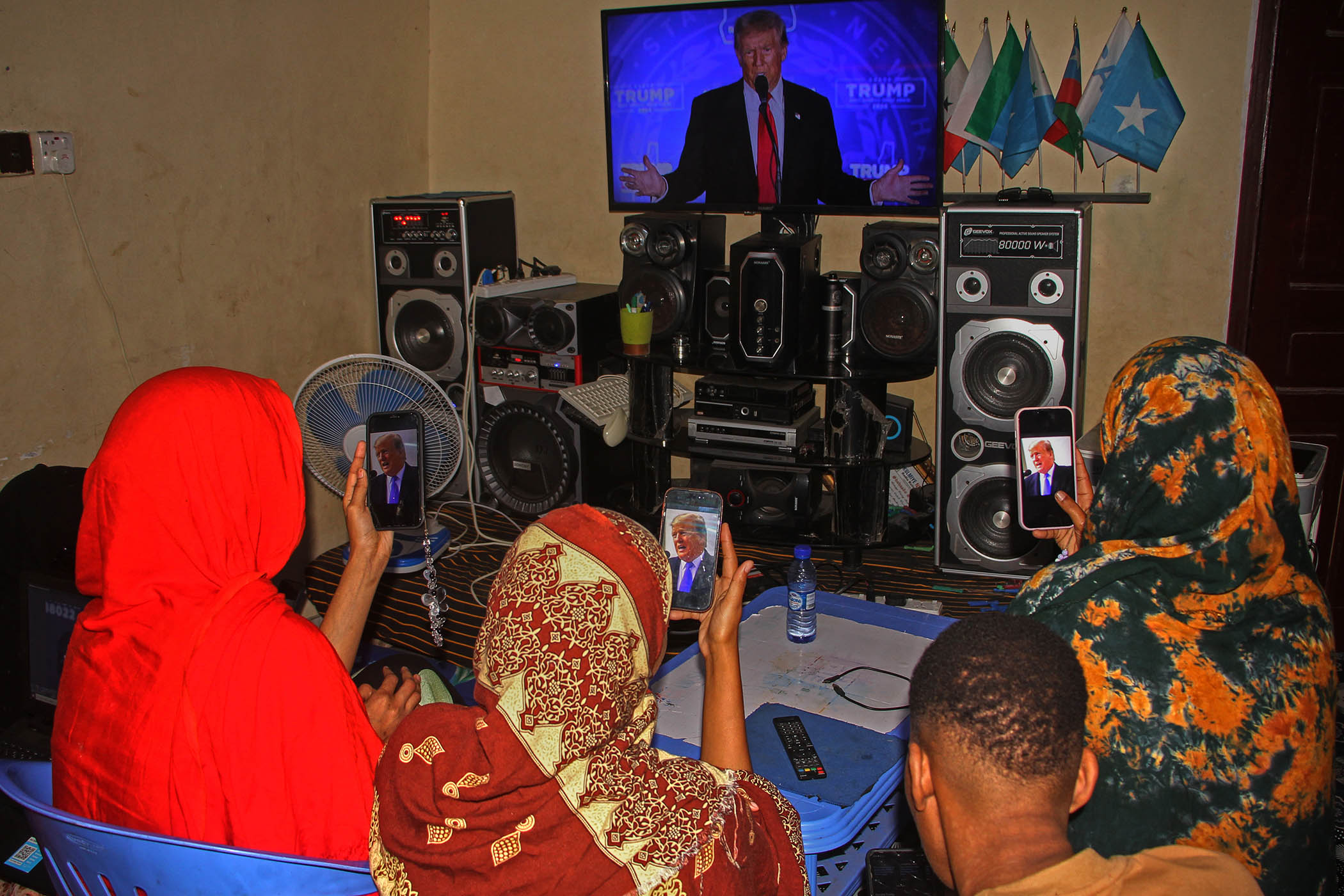Kicking back in front of his cocktail stand on a white-sand beach in Sierra Leone, Jacob Koroma (better known as “Jalex Sweet Mouth”) takes a long swig on a Moscow Mule.
“I’ll tell you the truth: this is the most beautiful beach in the world,” he says, shaking the ice cubes around his glass. “We have the park behind us, the sea is great for swimming and I make amazing cocktails.”
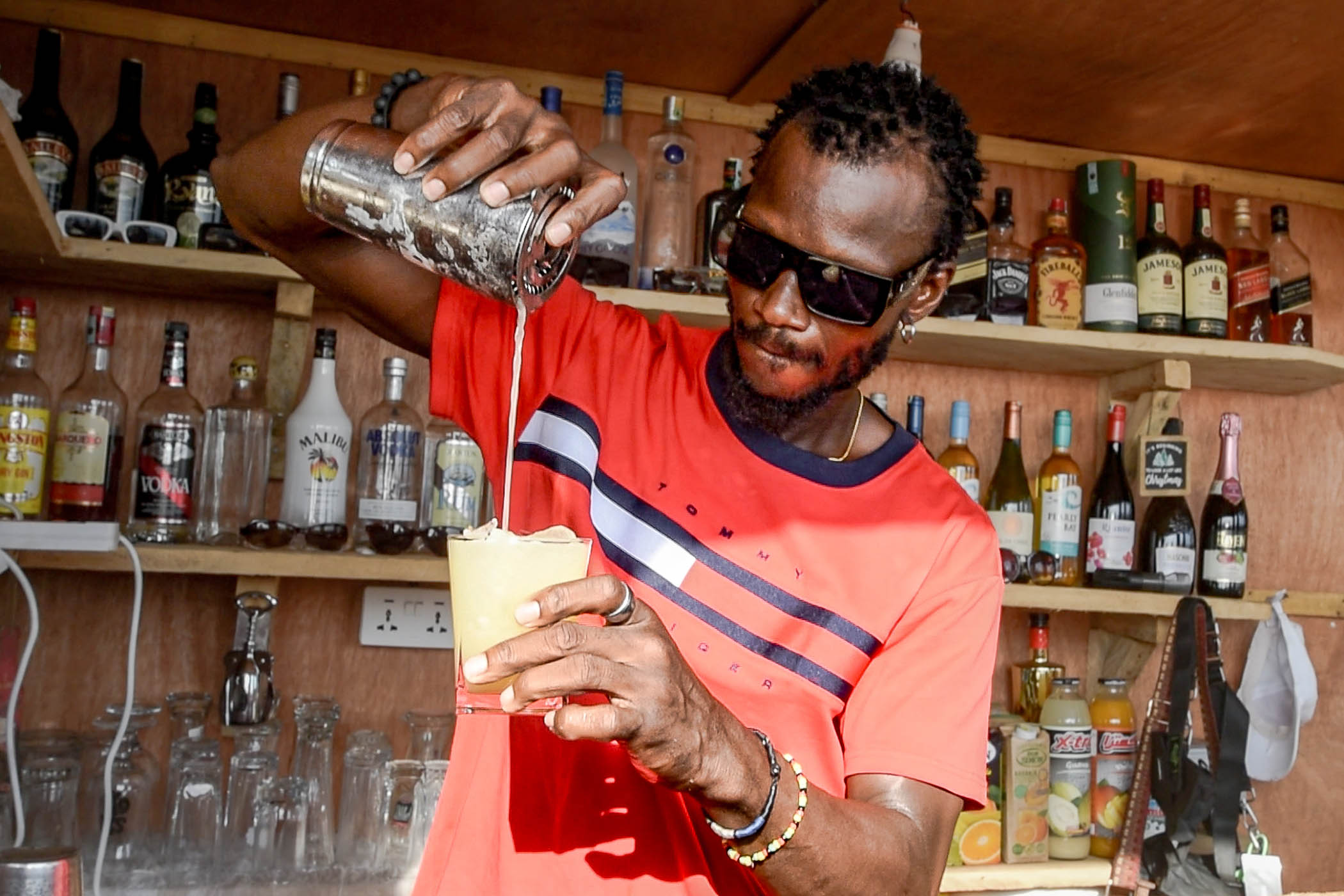
Jacob Koroma
It’s easy to see what he means. River Number 2 Beach is fringed by Western Peninsula National Park, an 18,000-hectare (44,000-acre) sweep of forests and hills that roll down the coastline for 20 miles. Swimmers can splash in the tepid, glistening waters of the Atlantic while gazing back at its emerald slopes.
But several of those hills, once carpeted in rainforest, are turning bare. Even as Koroma gets up to mix a Dark and Stormy for a new customer, smoke curls out of the park behind him. Every so often a crack and thud indicates that another smouldering tree has crashed to the ground. Workers are clearing land to build houses – extending the spread of illegal villas whose grey shells stud the half-stripped hillsides.
Sierra Leone, often described as Africa’s “best-kept secret”, is eager to sell itself as a sanctuary for ecotourism. Last year, officials from the tourist board attended trade fairs in London and Madrid, promoting the country’s pristine beaches, forests and wildlife. They spoke of sustainability and untouched beauty.
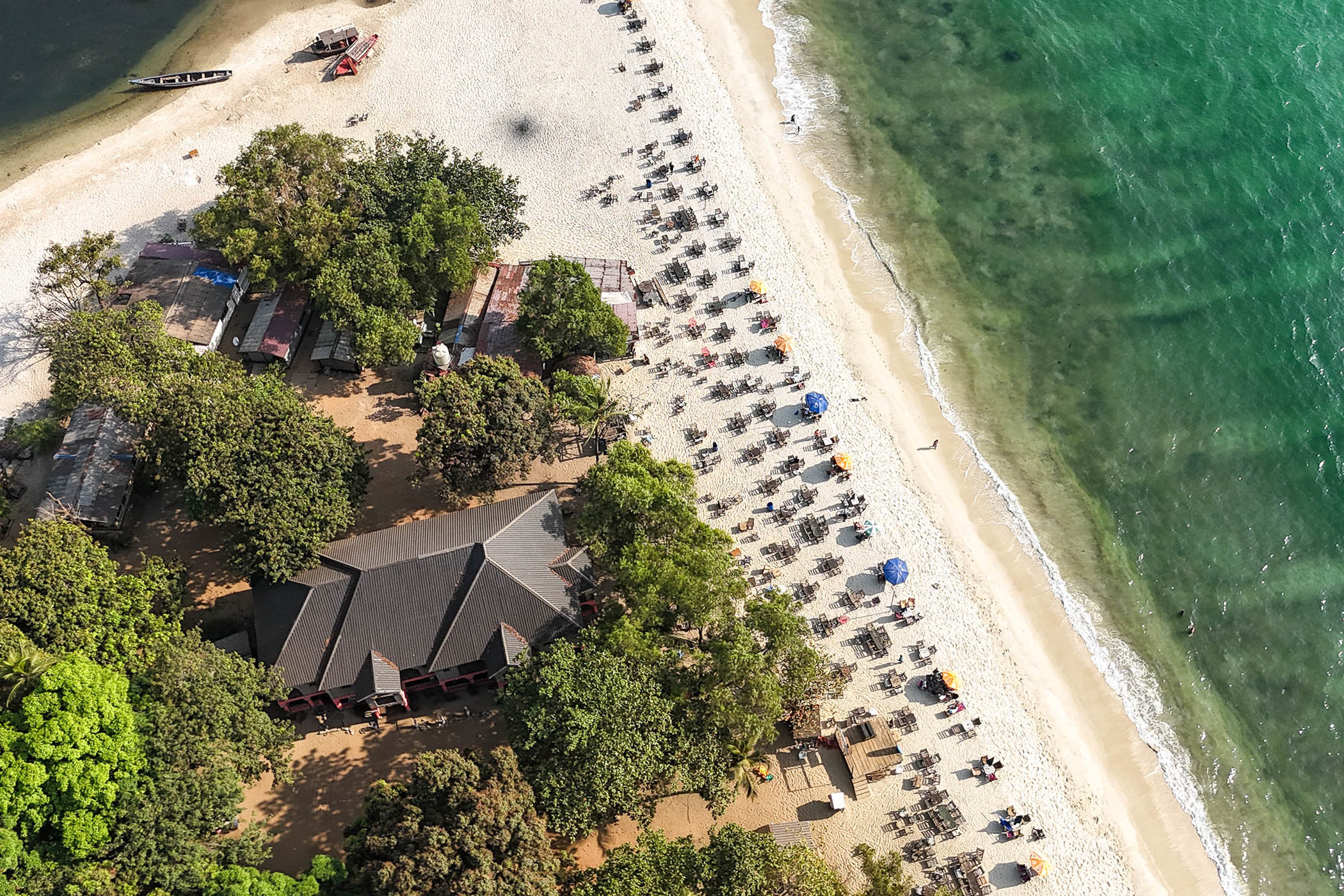
Yet the reality is not as polished. As the government markets ecotourism abroad, it is presiding over the destruction of its forests at home. In 2024 alone, Sierra Leone lost 3,705 hectares of primary forest – an area equivalent to more than 5,000 football pitches. And as the forest recedes, so too does the country’s ecotourism dream.
Nowhere has suffered more than the Western Peninsula National Park, which has lost nearly a quarter of its tree cover since 2020, according to satellite data from the UN’s World Food Programme. As Tommy Garnett, founder of the Environmental Foundation for Africa, puts it: “Sierra Leone is a very beautiful country with beautiful nature. But nature is under attack.”
The attackers come in many forms. Chinese companies are felling rosewood and mahogany, and quarrying deep inside a protected forest. Charcoal traders hack down trees to sell wood at markets, while politicians carve out plots for weekend villas within the peninsula’s green belt.
“Building is illegal in the park,” says Nabeela Farida Tunis, Sierra Leone’s minister of tourism, referring to the Western Peninsula. “The enforcement part is what we need to work on. Some of these things happen at night, when everyone is asleep.” But as smoke billows from the forest and trees thunder to the ground in broad daylight, the authorities are nowhere to be seen.
In a country struggling with corruption, nature is up for sale. Ill-equipped and often undermined by their bosses, the park rangers are outmatched by land grabbers. One recalls trying to stop Chinese workers from bulldozing a road into the park, only to be told by a superior to step aside. “Let them do their work,” his boss ordered down the phone. Weeks later, the company, Hong Tai, blasted open a mountaintop to quarry granite.
One hazy morning, three rangers – in khaki uniforms and heavy boots to protect against snakes – prepare for a patrol. John Brima fishes a pair of handcuffs from his back pocket. “We don’t have weapons,” he says. “They give some of us pepper spray and handcuffs. But some encroachers have machetes – they can chase you out of the park.”
Brima kick-starts a stuttering motorbike and ferries his colleagues one by one up a muddy track into the forest. The path climbs the hills before opening onto a stony wasteland – the remains of Hong Tai’s quarry. Rusting machinery lies scattered among giant slabs of granite, stacked in wide grids. The company allegedly bribed its way into the park, but without an export licence, it abandoned the project, leaving behind piles of rock.
The rangers press deeper into the forest on foot, as the track narrows into a tangle of vines. The air is soupy and carries with it a faint scent of smoke. Ahead, the canopy opens into a clearing hacked out of the trees. On one side, blackened stumps jut from scorched earth. The other is carpeted with spiky cannabis plants; the forest has been freshly burned to make room for more. At the far end, men feed logs into a charcoal pit, smoke twisting around them.
The rangers approach and take down the men’s names, issuing a perfunctory warning before turning back.
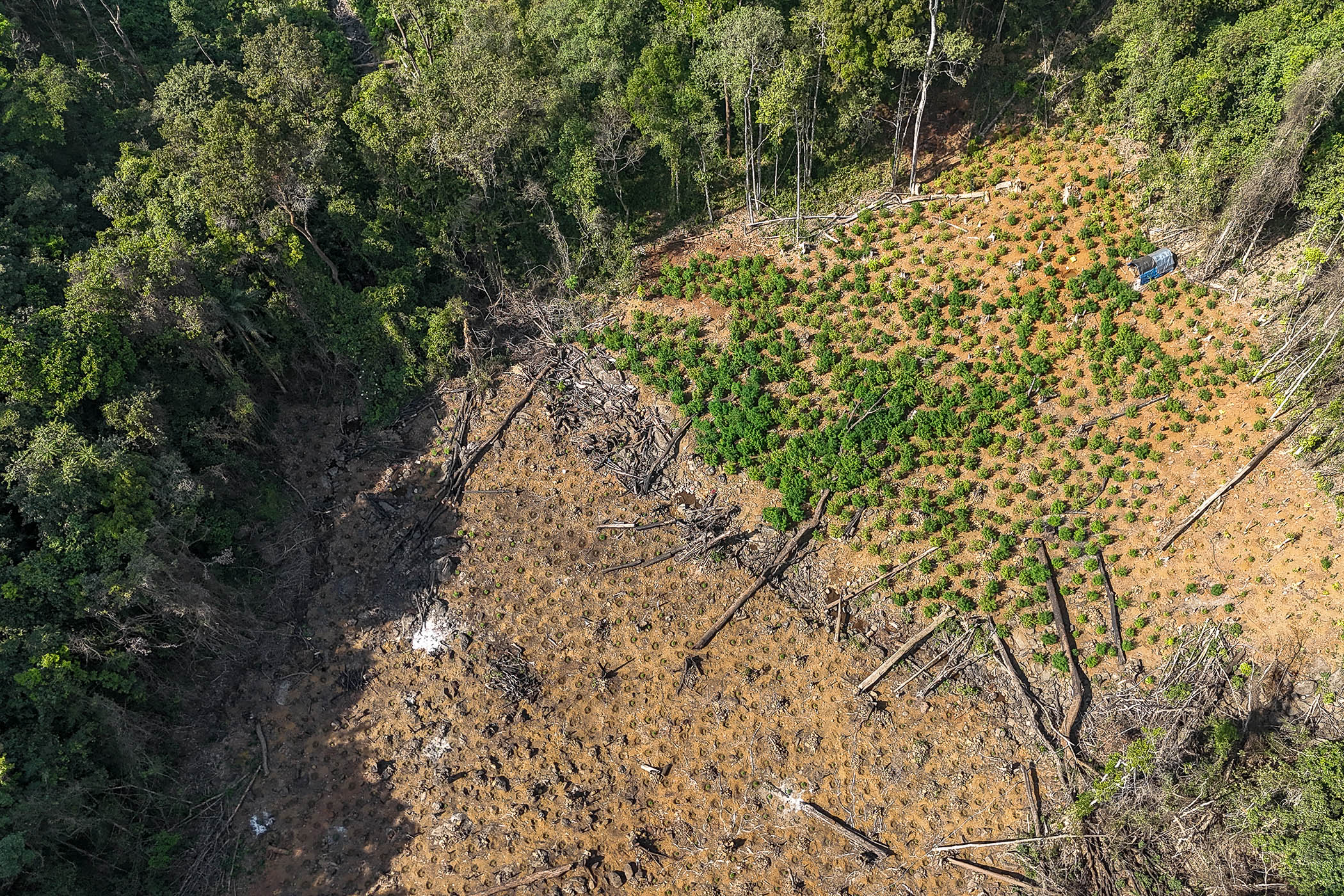
Cannabis grows where trees once stood
In the park’s north, one of Sierra Leone’s top ecotourism hotspots is now under threat. Tacugama Chimpanzee Sanctuary has, for 30 years, drawn visitors to watch rescued chimps swinging through the trees of its forest enclosure. Guests can spend the night in treehouses tucked beneath the rustling canopy.
But when fires began licking the forest around the sanctuary, founder Bala Amarasekaran closed it until the government took action.
“If these fires burn our electric fences, 120 chimpanzees could escape, creating a huge human/wildlife conflict. Everyone will blame the government for not acting,” he warned. After fresh assurances, Tacugama plans to reopen next month. Yet Amarasekaran remains wary, saying he will not hesitate to close again if promises to “halt illegal activities” go up in flames.
While Tacugama clings on, the government has allowed other ecolodges on the peninsula to be crushed. Tito’s Paradise, on Black Johnson Beach, once offered simple wooden bungalows along a sandy crescent fringed by mangroves. It was flattened in June to make way for a Chinese-funded port.
In 2021, Sierra Leone’s government accepted a £44m grant from China to build a deep-sea fishing harbour on Black Johnson beach. About 100 hectares of sand and forest are to be buried under concrete for a fish-processing plant and berthing dock – part of Beijing’s belt and road initiative.
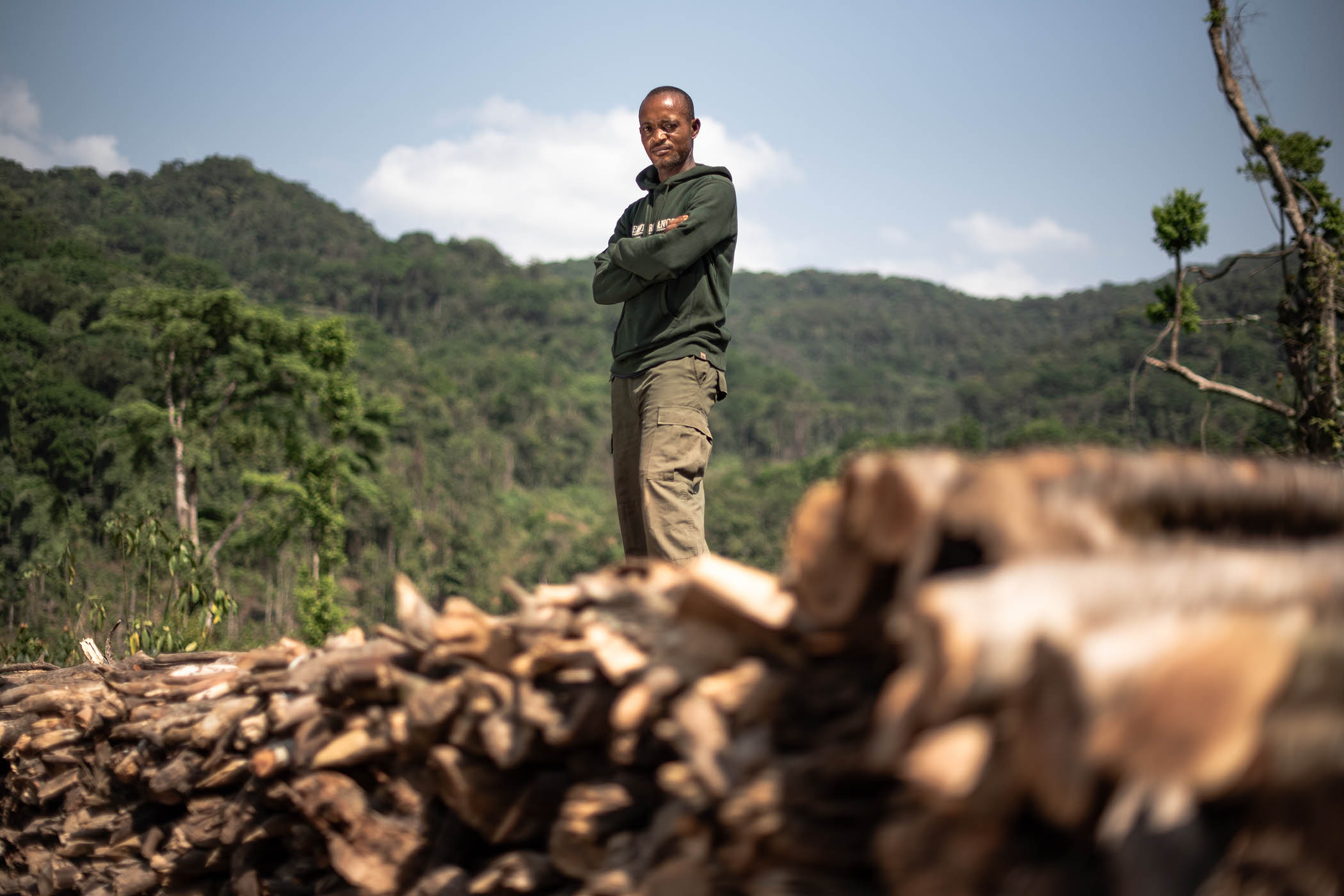
Ranger Prince Dumbaya and a pile of illegally felled wood
Some in government are trying to reverse the trend. Sierra Leone will unveil an initiative, Protect Salone, at Cop30 in Brazil. The plan aims to restore forests by expanding protected zones, replanting degraded land and rapidly scaling up cleaner cooking fuels to replace charcoal and firewood. But the scheme carries a £650m price tag, and its success hinges on securing swift financing, largely from international partners.
Even if the plan is fanciful, its ideas provide a measure of hope.
“Things can be done,” insists Yvonne Aki-Sawyerr, the mayor of Freetown. “We just need a government that actually cares.”
Back at his wooden beach bar, Koroma remains stubbornly upbeat. He insists the park and its beaches are still the pride of the nation. After all, he says, the colours of the peninsula inspired Sierra Leone’s flag.
“The green represents the amazing forests,” he says. “The white is for our white-sand beaches, and the blue – the beautiful blue ocean.”
But if the flag reflected the present moment then its green band would be fading fast.
Photographs by Olivia Acland
Newsletters
Choose the newsletters you want to receive
View more
For information about how The Observer protects your data, read our Privacy Policy
